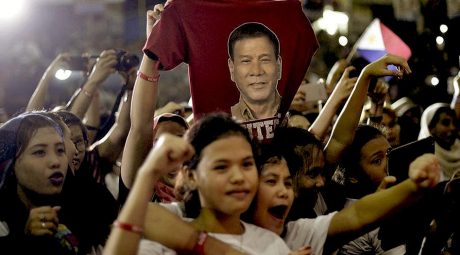
After being so patient with the snail-paced “reform” initiatives supposedly pushed throughout the six-year term of former President Benigno Simeon ‘BS’ Aquino III, liberal Filipinos are now raising a stink about the methods being emoloyed by current President Rodrigo Duterte to push real change. An overwhelming endorsement of Duterte’s different approach to instituting change during the 2016 presidential elections is now being met with a desperate campaign to invalidate it.
Much of this campaign to discredit Duterte’s controversial methods involves turning to the foreign media to, some say, “destabilise” the Philippines by painting Duterte as an international pariah. This is a consistent pattern seen throughout Philippine history. Filipinos have always turned to external entities — foreign governments, foreign media, foreign celebrities — to lend credibility to local initiatives, local brands, and local ideologies. It reveals a deep flaw in the Filipino psyche — an inherent mistrust or low regard for internally-originated ideas, principles, and cultural artefacts.
In this specific case, it is Filipinos’ disillusionment with the ability of their own state institutions to deliver justice. In normal societies, there are processes embodied in state institutions that are in place to resolve citizens’ gripes. In the case of the Philippines today, those institutions have been found to be generally ineffective, so much so that a presidential candidate who ran on a platform that promised swift delivery of results founded upon possible shortcutting of “due process” was embraced by the Filipino voter.
It is therefore quite ironic that those who rabidly oppose Duterte’s efforts to implement change, themselves exhibit this old penchant to turn to foreign influence to bolster their position. As of late, efforts to take Duterte to task for his alleged links to “extrajudicial killings” do not rely on the Philippines’ own institutional systems to address such cases. Instead, foreign media is seemingly being conscripted into the effort to “pressure” the Philippine government to revert back to the status quo — this being the Philippines’ traditional compliance to Western liberal ideals.
Indeed, the Opposition nowadays have taken it a step further. Trial-by-media using the Senate as a grand television studio to stage pointless shows-and-tells to entertain and indoctrinate the masses are no longer effective. Filipinos now easily see through the farce of Senate “inquiries” that are anything but the initiatives to aid legislation that they are supposed to be. The recent “inquiry” into “extrajudicial killings” led by Senator Leila de Lima had fallen flat on its face after an array of hastily-written scripts parroted by half-witted witnesses delivered laughs rather than awe.
There is an interesting point to consider, however, that runs counter to what Duterte’s supporters are insisting is a “concerted effort” to “destabilise” the Philippines led by local and foreign media. It is not really destabilisation that the Opposition’s employment of foreign media lackeys is trying to achieve. Rather it is a return to the old and stable status quo that the Philippines’ old guard oligarchs have long been comfy with. Indeed, in reality, it is Duterte who is destabilising the Philippines. Duterte is, the one rocking the boat. The ones who are feeling “destabilised” are members of the old guard who benefited the most from 30 years of “stability” within the sphere of Western liberal socio-political influence and an “integration” into the global economy that requires that the Philippines bow in abject compliance with its rules.
Duterte is changing all that. Nobody really knows whether that will ultimately be good or bad. But that is the whole point of rocking the boat, isn’t it? When you want to change, there are long-cherished traditions that need to be put under a harsh light of scrutiny and possibly axed. An old backhand that served you well as a tennis novice may need to be junked for a more competition-savvy technique. Stepping out of the comfort zone of a deeply-embedded amateur technique to embrace a more grownup stance is never easy. It’s like letting go of an old lover whose irrational jealousy held you back and kept you from spreading your wings. In both the tennis and moving-on-from-an-ex scenarios, it is fear of the unknown and the risk of failure that lurks in that unknown that often grips us. But what separates the men from the boys is in an ability to confront that fear and adeptly manage that risk of failure along the way.
It’s high time the Philippine Nation face change like a man. The shrill whining of the old emos who kept Filipinos under a state of emotional blackmail for 30 years no longer resonates as powerfully as it used to. When the emotionalism in those voices, loses its potency on society, what is left nothing more than its annoying shrillness.
http://www.getrealphilippines.com/blog/2016/09/rodrigo-duterte-makes-beneficiaries-tradition-status-quo-uncomfortable/

No comments:
Post a Comment